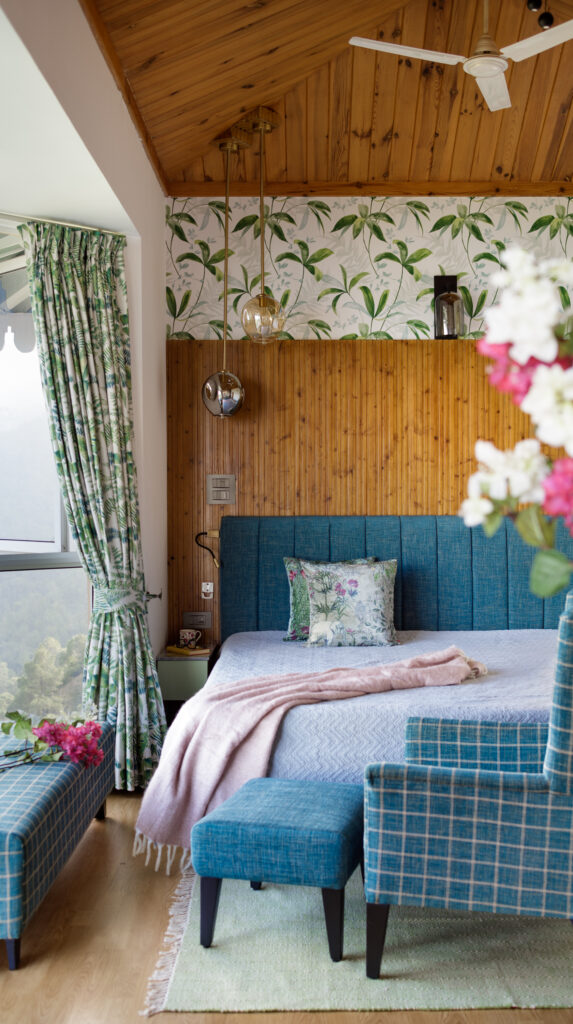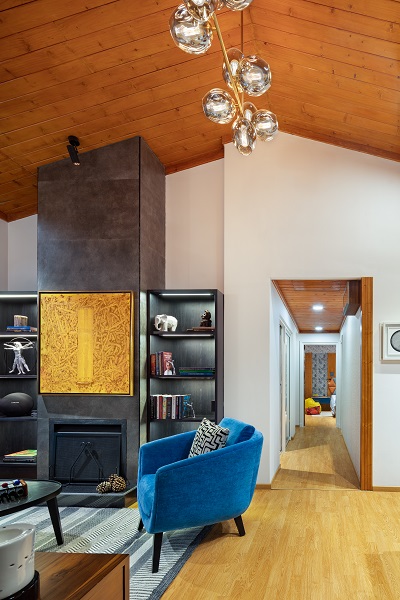“Embracing Cultural Heritage, The Works Interiors architectural practice is deeply rooted in the rich tapestry of each project’s cultural context. We recognize and honor the significance of heritage in shaping identities, infusing our designs with a profound sense of place and belonging.”
What eco-friendly design strategies or materials do you incorporate to ensure sustainability in your architectural projects?
At TWI Ethos, sustainability is our core commitment – from a macro, to a micro scale. We exclusively utilize plantation timber in crafting our furniture, complemented by meticulous finishes with low VOC coatings. Our emphasis on premium materials not only reduces the carbon footprint of our products but also underscores durability and longevity in our designs. With an unwavering dedication to environmental responsibility, we strive to set a standard for sustainable practices in the design industry, ensuring that every piece we create not only enhances spaces but also respects and preserves our planet for future generations.

How has technological integration transformed the way architects and designers approach their projects?
Definitely yes! At TWI, we believe that one has to move with the times, and keep up with the evolving needs of the client, as well as the current trends. All the interior design and decor pieces are created by our skilled artisans and craftsmen who perform wonders with their hands. Over the years, they are attuned to blending traditional techniques with modern technology to create truly exceptional pieces. The marriage of craftsmanship and cutting-edge machinery yields products of unparalleled quality and innovation, and with advanced software tools, we conceptualize intricate designs that seamlessly translate into reality, pushing the boundaries of what’s achievable. This fusion of tradition and innovation not only elevates the final product but also ensures precision and efficiency throughout the manufacturing process.
How do cultural elements influence your design process, and how do you incorporate them into your architectural creations?
Our practice is deeply rooted in the cultural context of wherever the project is, and we acknowledge and reflect the significance of heritage in shaping identities. Integrating cultural elements adds richness and authenticity to our creations, transcending mere aesthetics. Achieving harmony between tradition and modernity is an exercise we follow with thorough research and comprehension, and we ensure it extends beyond surface-level ornamentation. It entails a nuanced response to local conditions, encompassing climate, landscape, and site-specific considerations. This helps us celebrate the stories that are intricately woven into the cultural fabric of their surroundings, fostering a sense of belonging and comfort.

How do color palettes influence the ambiance and emotional response within interior spaces?
Color palettes give us a good opportunity to shape the ambiance and emotional resonance of interior spaces. While choosing the colour themes for our projects, we begin by analysing the space usage, and then understanding the psychological responses to different hues that enable strategic use of color to evoke specific moods and perceptions. Whether expanding space with light hues, enhancing warmth with earthy tones, or fostering intimacy with deeper shades, each selection is a deliberate orchestration to craft the desired atmosphere. Beyond aesthetics, the careful curation of colors is instrumental in imbuing interiors with character and personality, creating immersive environments that resonate deeply with occupants on an emotional level.
How is AI and IoT transforming the concept of smart homes, and what impact does it have on user convenience and efficiency?
The integration of AI and IoT is reshaping the very notion of smart homes, ushering in an era of unparalleled convenience, efficiency, and sustainability. By harnessing these cutting-edge technologies, homes become adept at personalization and responsiveness, handling tasks with remarkable autonomy. Take, for example, the ubiquitous adoption of smart locks in urban dwellings, streamlining access while bolstering security and minimizing reliance on traditional keys. This convergence of AI and IoT epitomizes a transition towards homes that are not just connected, but intuitively intelligent, offering occupants streamlined living experiences characterized by automation, efficiency, and enhanced quality of life.


